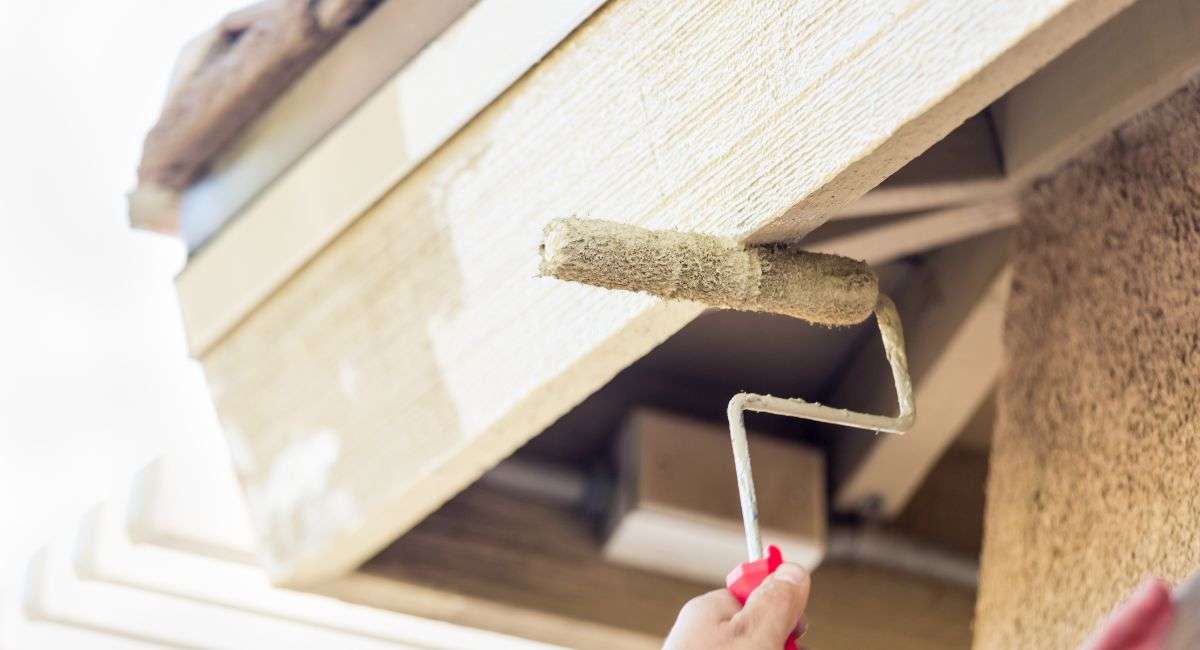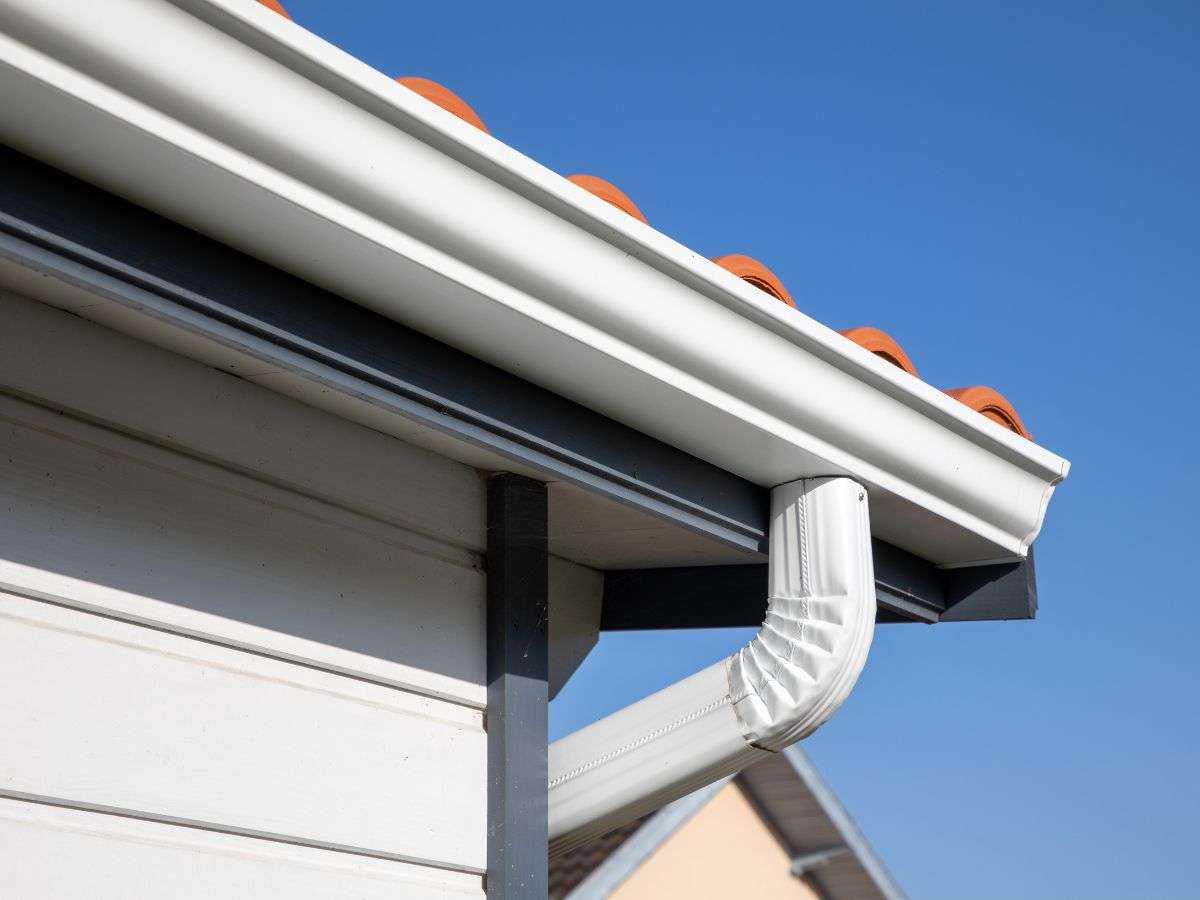Aluminum Fascia Wrap: Protect Your Home & Boost Curb Appeal
Let’s talk about your roofline for a second. You know that clean, vertical edge just below the shingles? That’s your fascia. It might not seem like a big deal, but it’s actually a key player in how your home looks and protects itself from the elements. At Roof MD, we’ve noticed that fascia often gets overlooked—until there’s a problem. That’s why we’re here to introduce you to a smart, hassle-free solution: aluminum fascia wrap.
In this guide, we’ll break down what fascia does, why wrapping it is a game-changer, why aluminum is a top pick, and even what to expect during the replacement process.
What is Roof Fascia?

Think of fascia as the “trim” of your roof. It’s that flat, horizontal board running along the eaves (the edges of your roof) just beneath the shingles and behind the gutters. It’s not just there to look pretty—though it does make your roofline nice and polished. Fascia actually has some super important jobs:
- It Keeps Your Gutters in Place: Fascia gives your gutters a solid foundation, so they can do their job and channel water away from your home. Without it, you’d be looking at water damage and a whole lot of headaches.
- It Protects Your Roof: Fascia seals off the ends of your roof rafters, keeping moisture, pests, and debris out. This helps prevent things like wood rot, mold, and unwanted critters in your attic.
- It Looks Good: Let’s face it—fascia just makes your home look more finished. A neat, polished roofline can really boost your curb appeal.
Most fascia boards are made of wood, which looks great but needs a fair amount of upkeep to avoid rot or warping. These days, more homeowners are turning to materials like composite or PVC for better durability and less maintenance.
Why Wrap Your Fascia?
Here’s the thing about wood fascia—it’s not exactly built to last forever. Rain, snow, humidity, and even the sun can take a toll over time. It can rot, warp, peel, and sometimes even attract pests like insects or woodpeckers. Wrapping your fascia is a simple way to protect it and keep your home looking great for years to come.
Here’s why fascia wrap is worth it:
- It Lasts Longer: Wrapping creates a shield against moisture, UV rays, and temperature swings, so your fascia doesn’t crack, rot, or split. It’s like giving your fascia armor.
- Way Less Maintenance: Forget about scraping, sanding, and repainting. Wrapped fascia just needs a quick clean from time to time, saving you hours of work.
- It Looks Amazing: Fascia wraps give your roofline a sleek, polished look that stays fresh. No peeling paint to deal with, and you can even pick from different colors and finishes to match your home’s style.
Why Go with Aluminum for Your Fascia Wrap?

When it comes to protecting your home’s fascia boards, the material you choose matters—big time. Sure, there are other options like vinyl or wood, but aluminum consistently outshines the rest. Let’s break down why aluminum fascia wrap is such a solid choice for your home.
Built to Last: Aluminum is tough. Unlike wood, it won’t rot, warp, or become a termite buffet. And unlike some metals, it doesn’t rust. While it might corrode in super harsh environments (think coastal areas with salty air), it’s still highly resistant to most conditions. Whether it’s heavy rain, snow, wind, or blazing sun, aluminum holds its own through every season, keeping your home protected year-round.
Practically Maintenance-Free: If you’re tired of scraping, sanding, and repainting wood fascia, aluminum is here to save you. Once installed, it’s as low maintenance as it gets. A quick rinse with a garden hose now and then is all it needs to stay looking clean and polished. No more weekend projects or endless upkeep—just a simple, hassle-free solution for your home.
Looks That Last: Aluminum isn’t just functional—it’s stylish too! It comes in a variety of colors and finishes, so you can pick the perfect shade to complement your home’s exterior. Plus, that baked-on finish resists fading, peeling, and chalking, ensuring the color stays vibrant for years. Whether you want a bold contrast or a seamless blend, aluminum makes it easy to get the look you want.
Lightweight but Strong: Aluminum is surprisingly lightweight, which makes installation faster and easier. But don’t let that fool you—it’s incredibly strong. It creates a tough barrier against moisture, pests, and other outside threats. So, while it’s light on your home’s structure, it’s heavy on protection.
Custom Fit, Every Time: One of the coolest things about aluminum fascia wrap is how customizable it is. Skilled installers, like the team at Roof MD, can bend and shape it on-site to fit your home’s unique design. Whether you’ve got clean lines or intricate details, aluminum can be perfectly tailored to seal out water, debris, and anything else Mother Nature throws your way—all while boosting your home’s curb appeal.
Things to Know About Aluminum Fascia Wrap
Aluminum is a great choice for fascia wrapping, but like anything, it has some potential downsides. Knowing what to expect can help you make a more informed decision and avoid surprises:
It Can Dent: Aluminum is lightweight and durable, but it’s not indestructible. Sharp impacts from things like ladders, hail, or falling branches can leave dents. These might not look great and could mean repairs or replacing a section. The best way to avoid this? Be careful with ladders and keep branches trimmed back. If damage does happen, don’t stress—repairs are possible!
Installation Matters (A Lot): Improper installation is one of the biggest issues with aluminum fascia wrap. If it’s not sealed or installed correctly, moisture can sneak behind it and sit against the wood underneath, leading to rot over time. The tricky part? You might not notice it right away. That’s why it’s so important to hire pros like the team at Roof MD. They’ll make sure it’s done right, so you can avoid those hidden headaches.
Color Fades Over Time: Aluminum holds up amazingly well, but after years of sitting in the sun, the color can fade or chalk a bit. It’s a gradual process and won’t affect the material itself, but if keeping the color vibrant is really important to you, it’s worth keeping in mind.
It Can Make a Little Noise: If you live somewhere with big temperature swings, you might hear some light “pinging” sounds as the metal expands and contracts with heat changes. It’s not super common, and it doesn’t affect performance or durability, but it’s something to know about—especially if you like things extra quiet.
Upgrading to Aluminum-Wrapped Fascia: The Process, Simplified
Thinking about upgrading your fascia? Whether it’s damaged, rotting, or you just want something more low-maintenance, aluminum-wrapped fascia is a great choice. It’s durable, looks great, and protects your home from moisture, pests, and weather wear. Here’s how we at Roof MD handle the process to make sure it’s done right:
Inspection First: Before we get started, we inspect your current fascia to see what’s going on. If there’s any rot, damage, or wear, we’ll flag it. Damaged areas need to be repaired or replaced before we install anything—trust us, skipping this step would only cause bigger problems later, like moisture issues or more decay.
Cleaning Things Up: If there’s any old wrapping, peeling paint, or debris, we’ll remove it during prep. This gives us a fresh, clean surface for the aluminum wrap to stick to properly.
Repairing or Replacing Wood: If we find any soft, rotted, or damaged wood, we’ll fix or replace it to make sure the base is solid. A sturdy foundation is key to making the aluminum wrap last for years without any trouble. We use top-notch materials to ensure your fascia can handle the elements like a pro.
Custom Fitting the Wrap: Here’s where the magic happens. We cut and shape aluminum coil stock on-site to fit your fascia boards perfectly. This custom fit eliminates gaps where moisture or pests could sneak through. Everything is overlapped and secured to create a seamless, watertight finish.
Soffit & Gutter Integration: Your new fascia will blend perfectly with your existing soffit system for a clean, polished look. If you’ve got gutters, we’ll make sure they’re re-hung securely and won’t affect the integrity of the fascia or the aluminum wrap. It’s all about making sure your roofline works together as one solid system.
Spotless Clean-up: Once we’re done, we don’t leave a mess behind. We’ll clear away all the old materials and debris, leaving your home looking better than ever.
Fascia Replacement and Homeowners Insurance
Wondering if your homeowners insurance will cover fascia replacement? The short answer: it depends on what caused the damage. Here’s the scoop:
When It’s Covered: Insurance typically steps in if the damage is caused by sudden, unexpected events (aka “perils”). Think high winds ripping off fascia boards, hail denting them, or a tree branch crashing down during a storm. If your fascia damage falls under one of these scenarios, there’s a good chance your policy will cover the repairs—just keep in mind you’ll need to pay your deductible.
When It’s Not Covered: Insurance usually won’t pay for damage caused by neglect, lack of maintenance, or wear and tear. For example, if your fascia rots over time because it wasn’t maintained properly or was installed poorly, that’s on you. Regular upkeep is key to avoiding these issues!
How Roof MD Can Help with Insurance Claims:
Dealing with insurance claims can be a headache, but that’s where we come in. If you think your fascia damage might be covered, Roof MD has your back. Here’s how we can help:
Thorough Inspections: We’ll inspect and document the damage, pinpoint the cause (like storm damage), and lay out exactly what repairs are needed.
Clear-Cut Estimates: Our team provides detailed, professional estimates that insurance companies can easily understand, helping avoid any back-and-forth.
Meeting Adjusters: If your insurance company sends an adjuster, we’ll meet them on-site to explain our findings and make sure everything is clear.
Top-Notch Repairs: Once your claim is approved, we’ll handle the repairs or replacement with the highest-quality workmanship—because your home deserves the best.
Trust Roof MD for Your Fascia Needs

Upgrading to aluminum fascia wrap is an excellent investment in your home’s longevity, beauty, and overall value. At Roof MD, we pride ourselves on delivering high-quality workmanship, transparent communication, and exceptional customer service. From the initial inspection and materials selection to expert installation and assistance with insurance claims, our team is here to make the process seamless and stress-free.
Ready to upgrade your fascia or need repairs? Contact Roof MD today for a free, no-obligation roof inspection and estimate! Let us help you protect your home with our expertise and dedication to quality.
